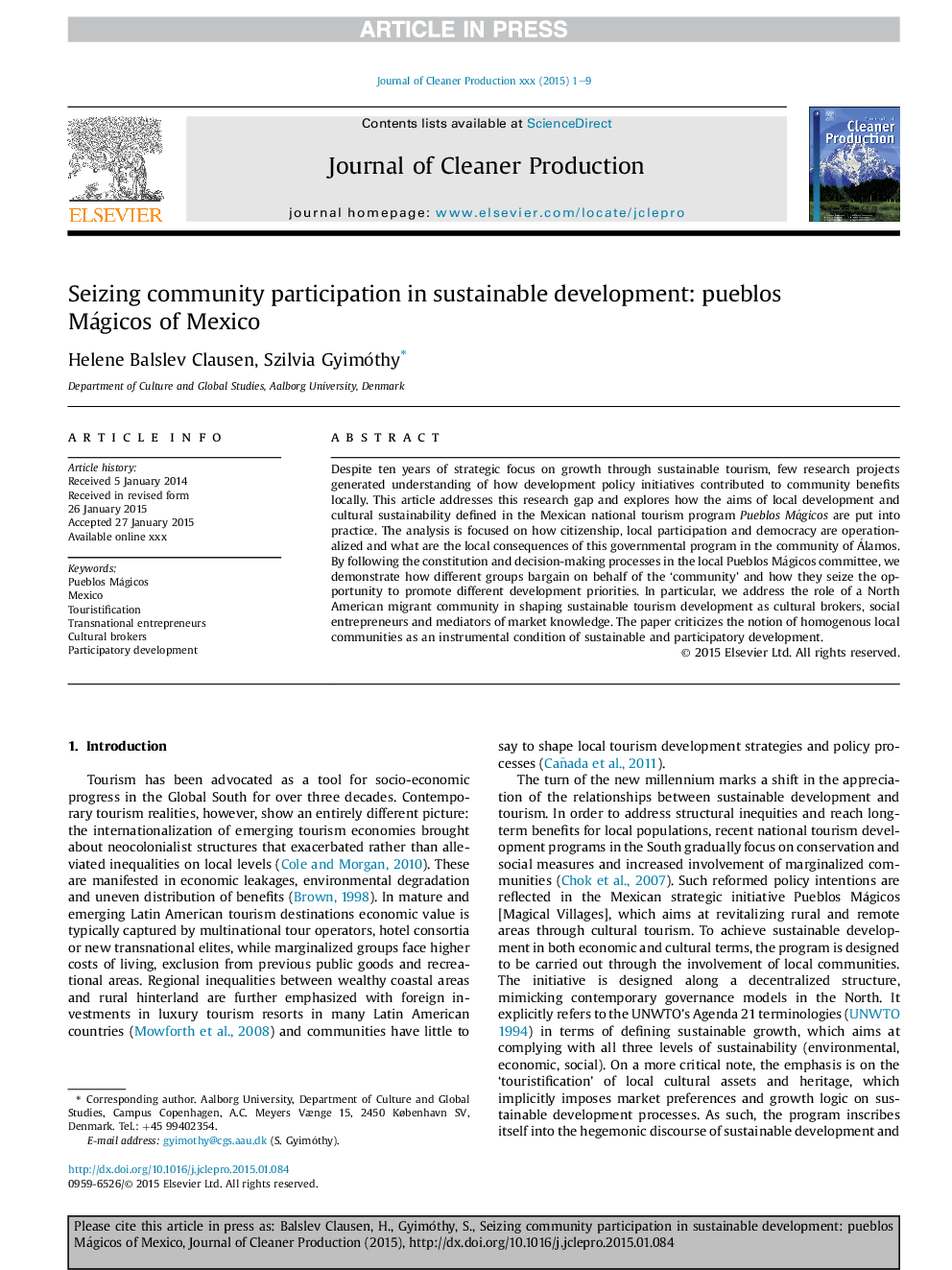| Article ID | Journal | Published Year | Pages | File Type |
|---|---|---|---|---|
| 10688110 | Journal of Cleaner Production | 2016 | 9 Pages |
Abstract
Despite ten years of strategic focus on growth through sustainable tourism, few research projects generated understanding of how development policy initiatives contributed to community benefits locally. This article addresses this research gap and explores how the aims of local development and cultural sustainability defined in the Mexican national tourism program Pueblos Mágicos are put into practice. The analysis is focused on how citizenship, local participation and democracy are operationalized and what are the local consequences of this governmental program in the community of Álamos. By following the constitution and decision-making processes in the local Pueblos Mágicos committee, we demonstrate how different groups bargain on behalf of the 'community' and how they seize the opportunity to promote different development priorities. In particular, we address the role of a North American migrant community in shaping sustainable tourism development as cultural brokers, social entrepreneurs and mediators of market knowledge. The paper criticizes the notion of homogenous local communities as an instrumental condition of sustainable and participatory development.
Keywords
Related Topics
Physical Sciences and Engineering
Energy
Renewable Energy, Sustainability and the Environment
Authors
Helene Balslev Clausen, Szilvia Gyimóthy,
